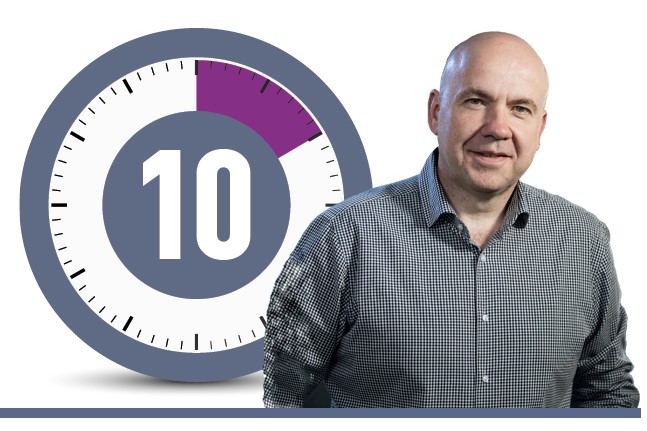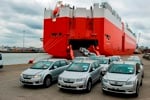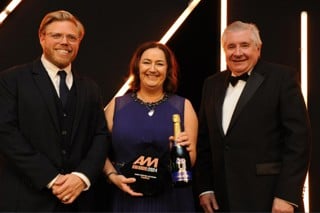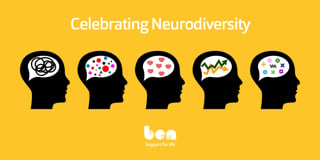You’re in an innovative part of the market. How did the business start?
We started as an incubator for a games industry suppler. We created driving and racing games and were the worldwide rights holders for NASCAR and Formula One.
We were approached by Jaguar Land Rover (JLR), who wanted to create a 3D configurator for the F-Type for the Geneva Motor Show. That was our leg-up into the automotive sector proper, really, so we have a lot to thank them for.
Audi saw what we had created for JLR and they started doing 3D for Audi City, but they weren’t able to roll it out. When they realised that our system worked off a normal PC, they couldn’t believe it.
After that, we became Audi’s official supplier worldwide. That meant we were able to spin Zerolight out more widely as a business in its own right.
Now Audi uses VR almost as an unveiling moment, with a 1:1-scale version of the configured car recreated so that the customer can take a walk around.
What key gaming influences in the ZeroLight product can help a car retailer sell cars?
The world of gaming is very good at customer engagement. All a game is is an immersive customer experience and that’s what retail really needed.
The analytics at the back end of our system is another thing we have brought across from our gaming background. In gaming, that technology is key in understanding exactly what customers are doing and why they are doing it.
Since we started, we have done deals with 14 car manufacturer brands, including Lamborghini and Pagani, which we have announced fairly recently and we have just signed a contract with a supplier in the US also.
We have previously worked on the launch of the Nissan Leaf with Toyota in Japan and with BMW on the M5, but this will be our first massive contract over in America.
What we do well at Zerolight is play on old-fashioned mental processes and, with the help of software, transform a traditional configurator into a 3D car that you can see on your mobile, on a laptop, in a dealership or via augmented reality.
To adopt this kind of technology really is a strategic decision for a retailer or a manufacturer. Only the most forward-thinking manufacturers have come on board so far.
Retailers may think VR and augmented reality is a gimmick. How does ZeroLight represent good return on investment?
We are a technology company, but we like to think that we are very much technology with a purpose.
We are trying to move a manufacturer’s cost centre into a revenue centre using our technology.
When Audi was rolling out our technology about two years ago, it put out a press release that said when a dealership digitises its showroom – with the introduction of a 4K screen, or VR or augmented reality – it generates an average of 15% more upsell because the customer will be able to see the options they might like to consider and better understand them. Through that, they are more likely to go on to buy it.
That statistic rises to 20% at an Audi City store like the one in Paris, which is fully digitised.
With our real-time online solution, we see an average uplift in engagement from customers of 66% and an uplift in options orders of 10%. Using Audi’s headlights on the A4 as an example, that can mean an extra €1,200 before the customer has even reached the dealership.
It also solves one of the big problems that dealers have in creating their own configurator or 3D marketing portal – that it’s very hard to get hold of a computer-aided design (CAD) from a car manufacturer.
Our SpotLight programme basically democratises access to the manufacturers’ car models and allows retailers to create their own bespoke brochures, internet microsite or marketing video – featuring the customer’s own configured vehicle.
This allows retailers to create marketing material that would cost thousands of pounds to outsource.
Can you give an indication of the costs involved in integrating ZeroLight software into a car retail operation?
We have tried to step away from the big software company heavy sell, so the assets are offered on a licence or subscription basis. As a rule of thumb, it would be about £200 a month.
Are retailers embracing this technology at a rate that represents a real growth opportunity for ZeroLight?
There’s definitely scope for growth in the retail group environment. It tends to be a head office sale because it’s a strategic decision.
The traction the platform can deliver is clear. There are currently about 1,500 Audi, Pagani and Lamborghini dealership sites operating our systems, with a variety of platforms – from a
wall-mounted 4K experience to an immersive VR experience, to an online configurator, and you can use any configuration of that hardware. It’s the Netflix of car retail.
Can ZeroLight’s software be fully integrated into a modern DMS to deliver marketing insight and help streamline the customer journey from online into the showroom?
We are currently integrating with existing online platforms and helping customers to transition from the internet into the dealership and feeding through all the information about the customer’s configuration journey through to the sales team.
No matter what device a customer is searching on, we track anonymised data every five seconds. We know what a consumer is looking at and where they spend their time on-site. That data, in turn, informs a retailer about how
interested the potential customer is in converting to a purchase.
When a customer walks through the door, they will have a QR code – which they have been able to generate without inputting any personal data – and the dealer knows how they reached them, what accessories they have looked at, whether they are interested in an optional wheel upgrade or a particular interior trim.
In short, it gives the dealer the information they need to tailor the sale to the individual.
The whole system is integrated into the dealer’s DMS and configured cars can be displayed on screens in the dealership.
We presented this customer data journey at CES last year, where we co-presented with Amazon about the value of anonymised personal data.
Traditionally, a consumer’s journey through a configurator, or gaining access to a brochure, has depended on them inputting personal data, which has become a huge compliance issue with the advent of GDPR.
Many consumers will venture far further, engage to a greater extent, if the journey is anonymised.
For our retail partners, that means they stand to learn a lot more about the people looking at their websites.
From a manufacturer point of view, we can feed back data to a marketing department that allows them to find what customers think is the car’s best angle, colour or ideal configuration.
It also allows our learning to put different options in front of a customer in the same way that Amazon present a ‘people who bought this also bought…’ offer.
Is there a used car solution that ZeroLight can offer, given the recent growth in emphasis on this part of the sector?
Used cars are interesting. For an Audi franchised dealer, for example, we are able to recreate any car from the past four or five years, all they have to do is input the VIN number.
People will always want to see a photo or video with a used car, because of wear and tear issues, but if you want to see the car and get some handle on the features, then we can play our part.
What’s your ambition for the growth of the ZeroLight business?
The plan over the next two years is that, with the help of a newly expanded sales team, we’ll grow the business in mainland Europe, the US and Japan and China.
For this year, we plan to achieve 100% growth (2017/18 turnover was £4.05 million, loss before tax £3.28m), but we’re not making a billion…


















Login to comment
Comments
No comments have been made yet.